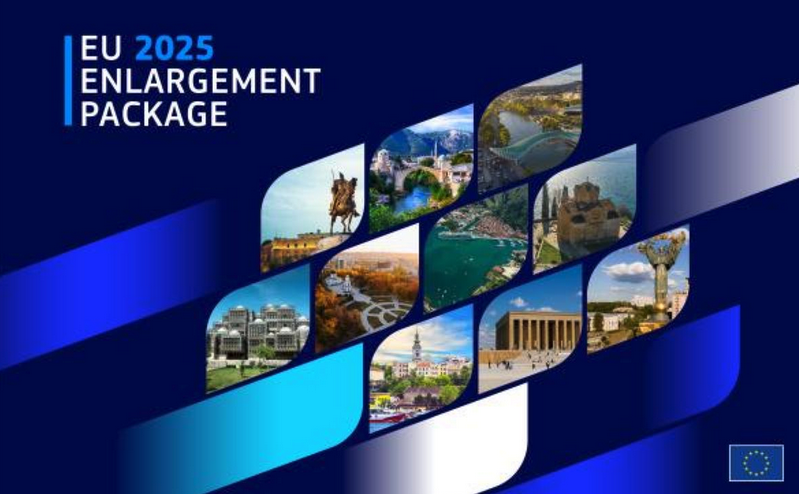The European Commission presented its annual Enlargement Package, which evaluates the progress of candidate countries and potential candidates on their path towards the European Union. It is clear that enlargement remains a central political goal of the EU.
The road to the EU membership is a clearly structured and performance-based process. Each country must meet specific political, economic, and legal criteria – including stable institutions, a functioning democracy, the rule of law, and respect for fundamental rights.
Many candidate countries demonstrate that the European perspective continues to be a powerful driver of reform. Montenegro has shown particular ambition, having closed four additional negotiation chapters with aim to complete the accession process by 2026. Albania has also made significant progress and plans to finalize negotiations by 2027. Ukraine has shown strong reform commitment, is working systematically to open all negotiation chapters and striving to complete the accession process by 2028. Similarly, the Republic of Moldova is making progress; the first Moldova–EU summit marked a new stage in its accession process, which is also expected to conclude by 2028.
Other countries, however, face greater political challenges, such as Serbia, North Macedonia, and Bosnia and Herzegovina. Despite its importance as a partner, Turkey has been effectively at a standstill since 2018, as ongoing restrictions on democratic rights and judicial independence prevent progress. Georgia, according to the European Council’s 2024 estimation, has also experienced setbacks in democracy and fundamental rights, leaving its accession prospects blocked. Kosovo is regarded as a potential candidate, but several EU member states still do not recognize it as an independent state. Key requirements remain political stability, continued reforms, and above all, the normalization of relations with Serbia.
From the EU’s perspective, enlargement is an investment in peace, stability, and prosperity. It strengthens the Union as a whole, making it more united and resilient – politically, economically, and socially.

